Our twice-a-year team outings (offsites) are usually an anxious affair for me. This time though I was surprisingly nonchalant as I started packing an hour before leaving for the station to catch the train. We had picked an unusual destination, Bhopal. We had an early dinner and I was dropped off at Dadar station at 7pm. Just as I was getting worried at the lack of any jitters, travel anxiety started to kick in. I hope I don’t miss the train. Thankfully I saw Mayank waiting at the platform and that subdued my anxiety a bit. Soon Rutwik joined and within a few minutes the train arrived. Most of the team was already settled when we entered our compartment. We usually take a flight, but we decided to take the train as a conscious choice to reduce our carbon footprint. A train is also much nicer for socialising, as you can walk around and huddle in groups. Deepesh broke the ice instantly with a fun card game and everyone was nicely warmed up.
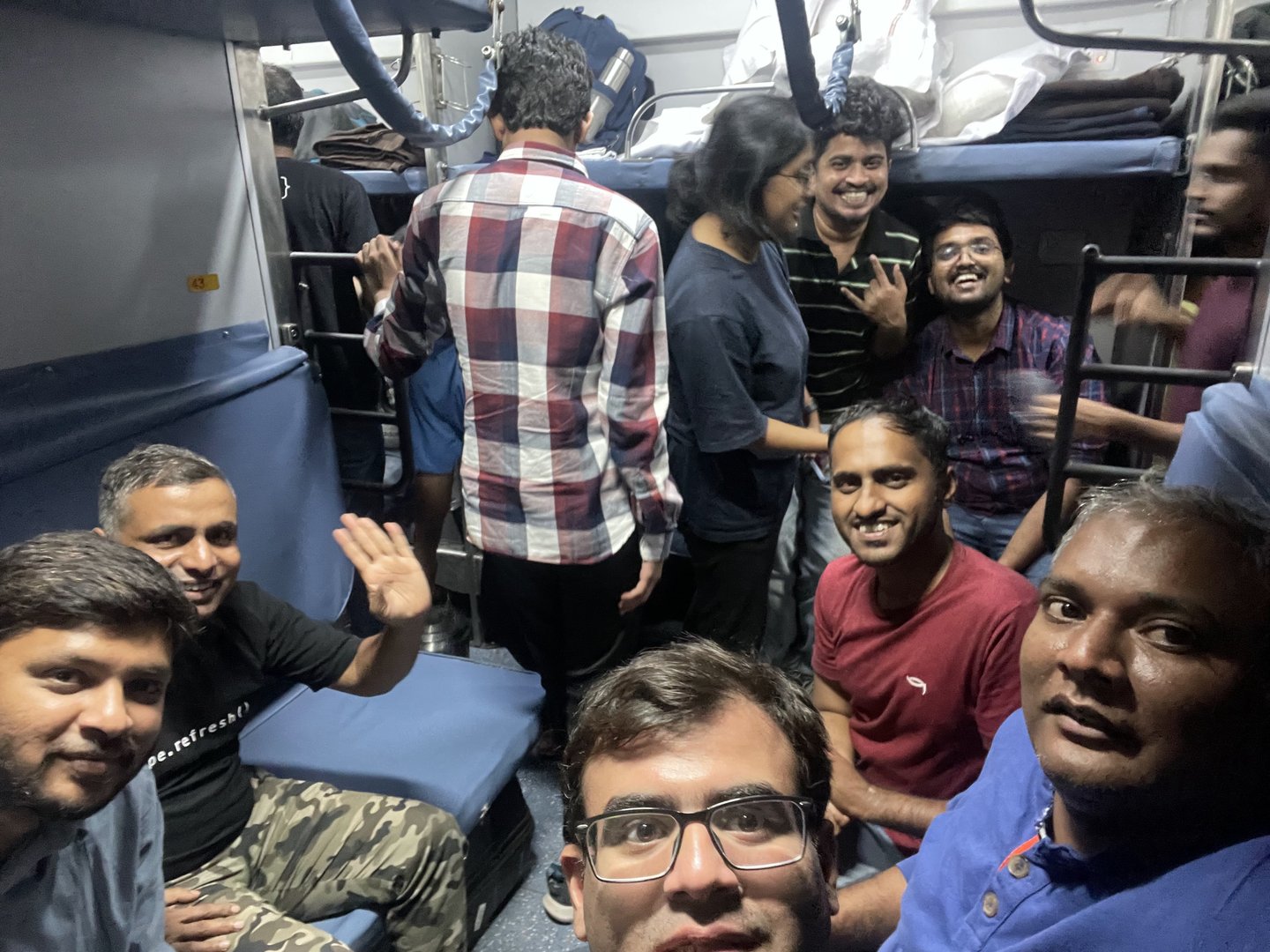
Day 0: Train Journey
Maybe I was a bit relaxed because the days leading to the trip were quite intense. The year had started with a big bang with “pick your own pay” and a 60%+ pay hike. Everyone was fired up. But the first few months were an anti climax as we did poorly in terms of revenue growth, reminding us that we still did not have a product-market-fit. Something had to give, and hard decisions had to be taken. Since the buck stopped with me, I had gone about the unhappy task of asking people who were not able to justify their contributions to leave.
On top of this, the market had also taken a downturn. Layoffs were in the air. “Don’t love your company because your company does not love you back” screamed well meaning influencers on social platforms. Things did turn around at Frappe though. With some tightening, our expenses came down and also we saw some growth coming in recent months. This brought us to the happy situation of being profitable. After dipping into our reserves (the funds we raised from Zerodha), we were back in the black and our reserves were looking better. Even though Frappe was doing reasonably well and people were still having fun, the atmosphere overall was one of anxiety. Some people were thriving in this, with their confidence much improved, and a few were feeling subdued, anxious and scared.
After a comfortable and fun overnight journey, we reached Bhopal at 10am. A short bus journey was supposed to take us to our destination, a jungle resort about ~50km away from the city. The state Madhya Pradesh has a lot of forests and this is where Rudyard Kipling wrote his famous “Jungle Book” about a boy (Mowgli) raised by the wolves in the wild. We hopped on into a rather old looking bus on our onward journey. Like every other growing city, Bhopal was full of dust, traffic and ugly concrete blocks jutting out of everywhere. As we drove on, I realised that we were heading in the wrong direction by looking at the maps.
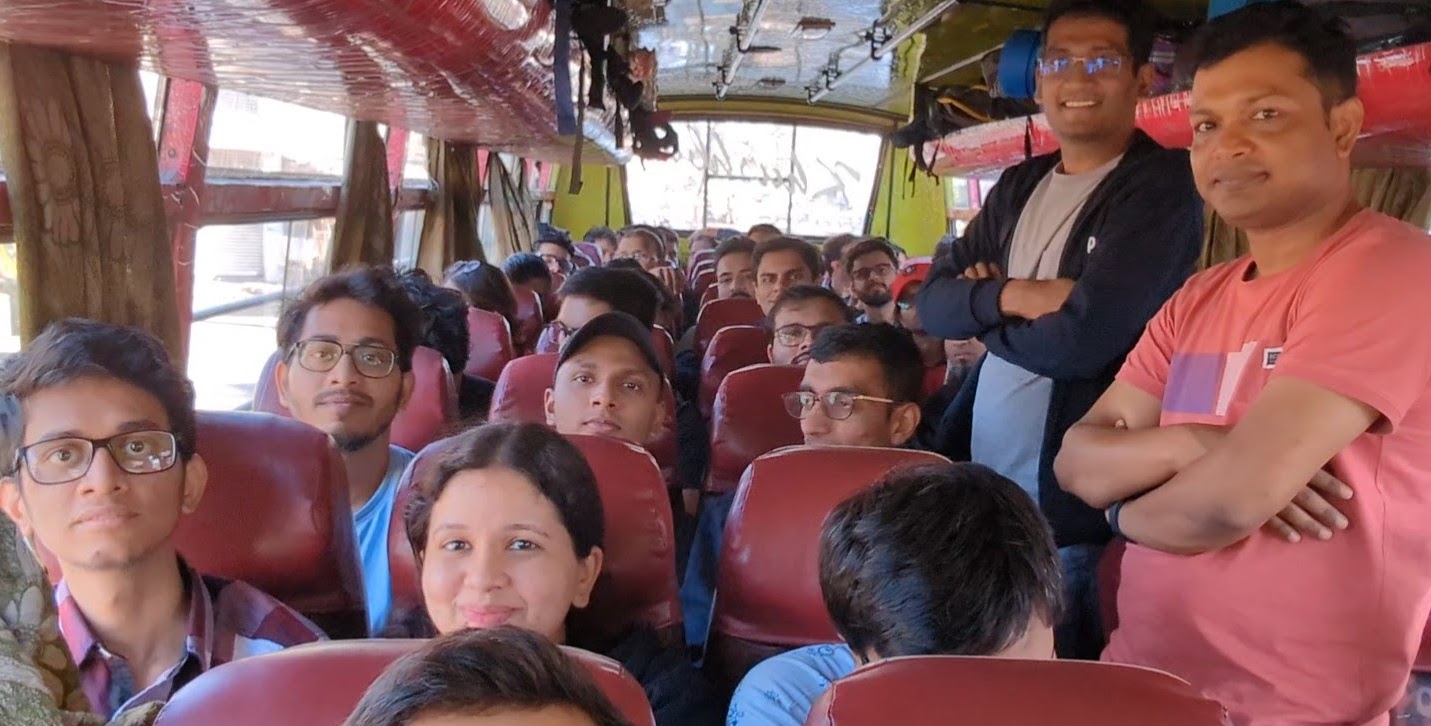
Day 1: Bus journey
I often find myself in situations where what I think is very different from what everyone else thinks. People felt that the driver is a local and maybe he is taking us through a faster route. I bought that for a while, but after a point I could see that we were not correcting the course. After a slightly heated discussion ("It’s on me, just do as I say") I convinced the driver to take a turn and correct the course as Google Maps showed us. Just as we were getting back on track, we came to a railway underpass which was not high enough for a bus to go, so we had to trace back our route even further to find a new crossing. As we drove away from the city towards sparse villages, we came head to head with a tractor on a very narrow stretch of the road. After another heated discussion ("My tire has punctured, we can’t go back" — "No, there is a sharp turn behind us, we can’t go back either"), we were able to pass each other. Finally we reached our destination in time for lunch. At least this time, I wasn’t wrong.

Day 1: Our hotel
The hotel itself was on the edge of a large artificial lake and near the dam and power station. The area itself had a village nearby because of the dam, but otherwise it seemed like a reserved forest area. The weather was pleasant and the hotel was clean and competent though it was set up more like a beach resort with shacks and lounges rather than a rugged jungle resort. Soon we unpacked and assembled for lunch. Since we were running late, we planned our first session just after lunch. Everyone was waiting for the drama to begin.
I could see drowsy faces all around as people were tired from the long train and bus journey. After a sumptuous meal, I understood everyone just wanted to lie down. Someone had the idea that all of us should stand and clap, so we did that and that did manage to shake everyone up from their lethargy. The way we do our offsites is that everyone speaks in the opening and closing session. We have circular layouts that could have two rows if there is not enough space. In their opening talk, most of the people said that they were here to meet other folks and have fun. A few people said they wanted to know more about the company’s strategy and direction as we went forward.
Day 1: Discussions
So we started the discussion with strategy. One of the big problems we were facing was the complexity of our business (complex sales, deployment as well as product), and in the last year we had decided to simplify our business by giving up services. This time we talked of simplifying even further by letting our partner ecosystem handle the entire customer interaction with Frappe having only limited customer engagement that is required to give the customer confidence and trust. The way to get more customers is to give better quality (our price is quite low) and the way we can bring in more quality is by being more focussed. So we will continue to rely on our partners as we narrow our focus to things we can do with excellence.
One of the objectives of every offsite is to attempt to raise the bar of excellence. I believe that most people are already motivated, they just need the right environment to bring out their best, and our job is to create that environment. Along with this we also need to build a culture of quality and speed. Even though we did a lot of work, it seemed that some of our work lacked velocity. Even after 15 years, we were only closer to our product market fit, and it still eluded us. While most of us wanted to work in a “hypergrowth” company, we were not ready to put in the kind of effort / speed that was required to reach hypergrowth.
The way to grow faster is to increase the rate at which we run experiments and iterate. Experiments are hard on people who prize stability and the startup environment is probably not one of them. Constant experimentation needs a kind of detachment otherwise it leads to anxiety and burnouts. This discussion did not go well judging the reaction of people, but there was a lot of food for thought.
—
On the third day we went on an excursion to Sanchi - home to the oldest standing monuments in India, the 2300 year old Buddhist stupas built by Ashoka. The structures older than these belong to the lost civilisation of the Indus Valley. The Sanchi monuments were beautiful and well maintained. They follow architectural conventions that seem very alien today. The structure of the gates and the pillars, the faces and symbols are all unique. The representation of the Buddha (and enlightenment) as a tree and not a human is very interesting.
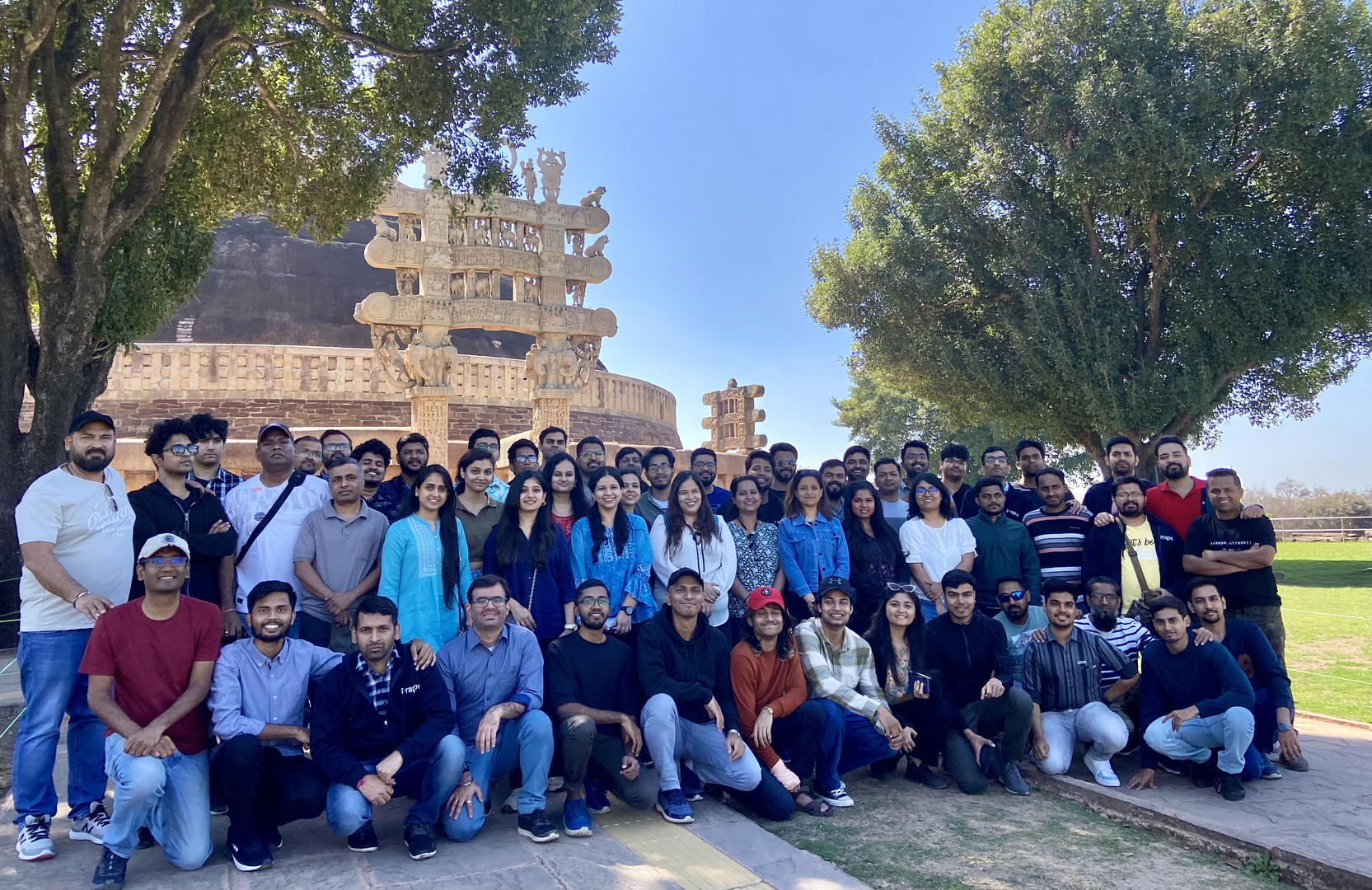
Day 3: Sanchi
On the way back we also stopped by the country's largest mosque at Bhopal. The architecture of the mosque was dramatic as well. Large gates that take you towards the altar, only to find nothing but a small window looking outside, beautifully depicting the ying and the yang. God exists, yet doesn’t? Philosophical debates are staple at Frappe. When you discuss philosophy, everything else seems mundane.
—
Apart from velocity we also talked about leadership. It is not easy being a leader in Frappe, Frappe being a flat organisation. As the most senior leader, I keep preaching freedom and “figure it out” is what I tell most people when they have to make hard decisions. I am a big fan of relying on “magic” (intuition) to make things happen. This is not because I don’t want to help them, but because in most cases, I don’t know better and I want people to learn by failing. Sometimes though (when I am paying attention, which is random), I point out things that are not going well and it puts people in a difficult position. This works amazing as far as creativity is concerned and we do reasonably well here. But there is the other side, that is responsibility. Excellence and quality requires determination. This is where we struggle, not able to understand the complex interplay between freedom and responsibility.
Some of the discussions became heated as the offsite continued. I asked the “leaders” in Frappe to step up and take up more “responsibility” without giving up on “freedom”. Brutal honesty is sometimes more important than hard work to bring success. For better accountability, we defined 6 teams and team leaders and created a leadership council. Ankush, who has the loudest voice in the organisation because he fearlessly says things others only think, challenged the leadership team to stick around for at least three weeks. Some experiments, as he rightly pointed, must last for longer. Structures have not lasted well in Frappe, and it will be seen how much this one continues for.
The discussion that got everyone excited was about stock options. Every year we have been generously handing out stock options to those who want them with the hope that they will stay for a long time. Aditya has been leading this effort in the past couple of years as he understands the value of careful investments. This time, since there was a reasonable chance that we will book a profit, we floated the idea of a “buy-back” where the company will buy-back options to those who want to exercise them. This got everyone excited and people were asking questions on taxation and vesting and exercising. Those who had options could see the value of their efforts and how they could have a massive pay off if and when the company did well. Later someone told me that the discussions about ESOPs went on late into the night. This completed a very important loop in the organisation - freedom, with a fair system of reaping rewards.
—
On every offsite, we go on a “trek”. This is usually uncharted and we just enter wilderness with the help of online maps, either trying to scale a local peak or just wander in the forest. There were no big hills around where we were, so we crossed into the forest trying to reach another village we could see on Google Maps. We had an inkling that there were wild cats in this part of the forest. These forests were very different from the tropical forests around Mumbai. There were trees with large leaves, leaving little sunlight for the undergrowth which was absent. This meant that there was ample space to walk as we kept on crunching the large dry mulch that carpeted the floor. Soon we found a dry riverbed that we followed for a bit, looking closely at the marshes to see if we could see a wild cat.
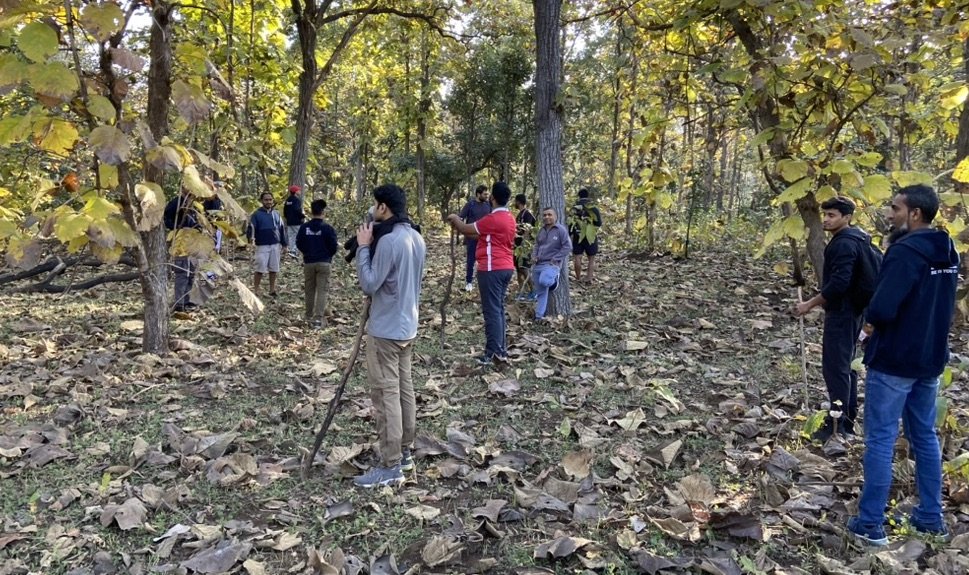
Day 2: Trek
Rohit, who had twisted his knee on an earlier trek (which was later operated) was brave enough to join this one. He was still not fully back to normal, having a slight limp in his walk. I let him take the call, thinking that there does not seem to be too much climbing in this area. As fate would have it, he fell again on his knee. My heart sank as I saw the grimace on his face as he could not stand up. I immediately started thinking about how we would carry him back to our hotel and give him medical attention. As I was mulling the options, suddenly the contours of his face changed, and within a couple of minutes he was up on his feet. He said that he felt that his knee had relaxed completely and now he was free of his limp. Whatever the first fall twisted, the second fall untwisted it. It felt like a miracle!
Ultimately complex systems behave in ways we can’t always understand. I am not taking a lesson here, but a company with 60 people works in complex ways that can’t always be comprehended. Rohit’s freak recovery makes a complete mockery of “intelligent design” that we all seek solace in. It makes you question if planning is overrated. Should we just keep trying different things until something finally seems to work? Should we change everything or some things? And then what to change and what to keep? And how long? I don’t think there is any method here. Probably we have to reduce the cost of each failure until we learn to build something that a large number of people seem to want, or till the market changes its behaviour to use the product we are building.
—
PS: Thinking back, I realise my anxiety was lower because this is now a very stable team and everyone is familiar with each other. There is a basic trust and alignment and bond that most people have formed within the team.
Another big improvement I could see is the relative objectivity with which people were taking critical feedback and having difficult conversations. Earlier, any criticism was taken personally and there used to be a wave of reactions and overreactions. Now people seem to be way more open. Sure, still some people take hurt on criticism but the overall maturity of the group is a lot more. This makes it easier for everyone to give critical feedback and hopefully improve. This gives way to more enlightened discussions.
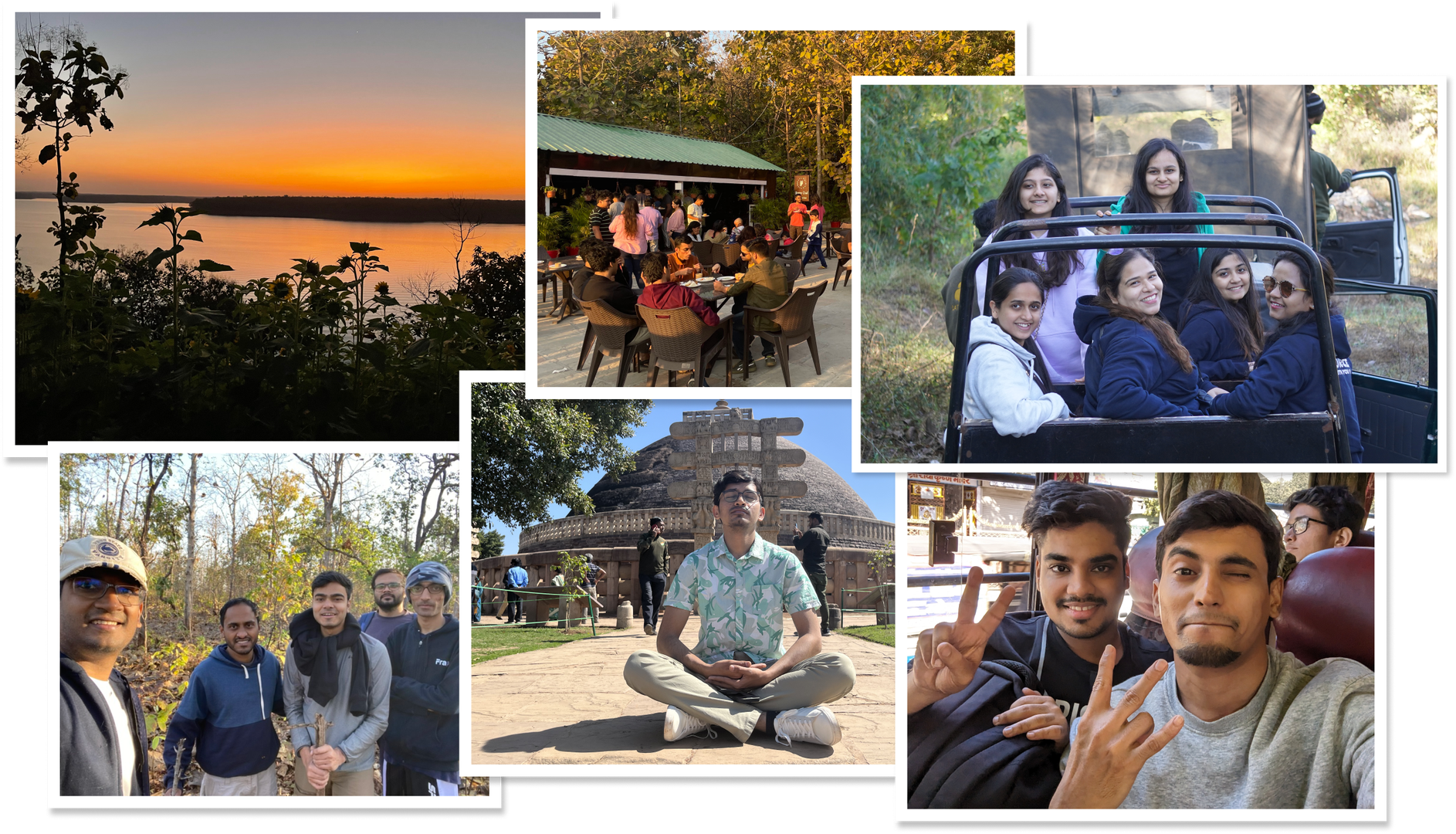

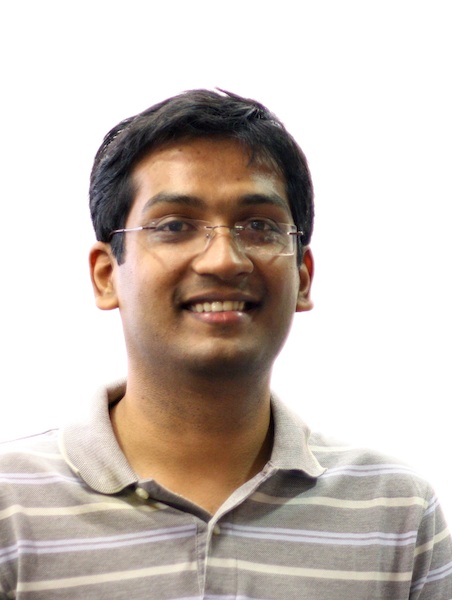


·
ok
·
Interesting offsite. This gives us input for our next offsite.
·
It's not a 10 minute read! It's hilarious. Especially if one keeps track of Frappe journey, and these blogs.